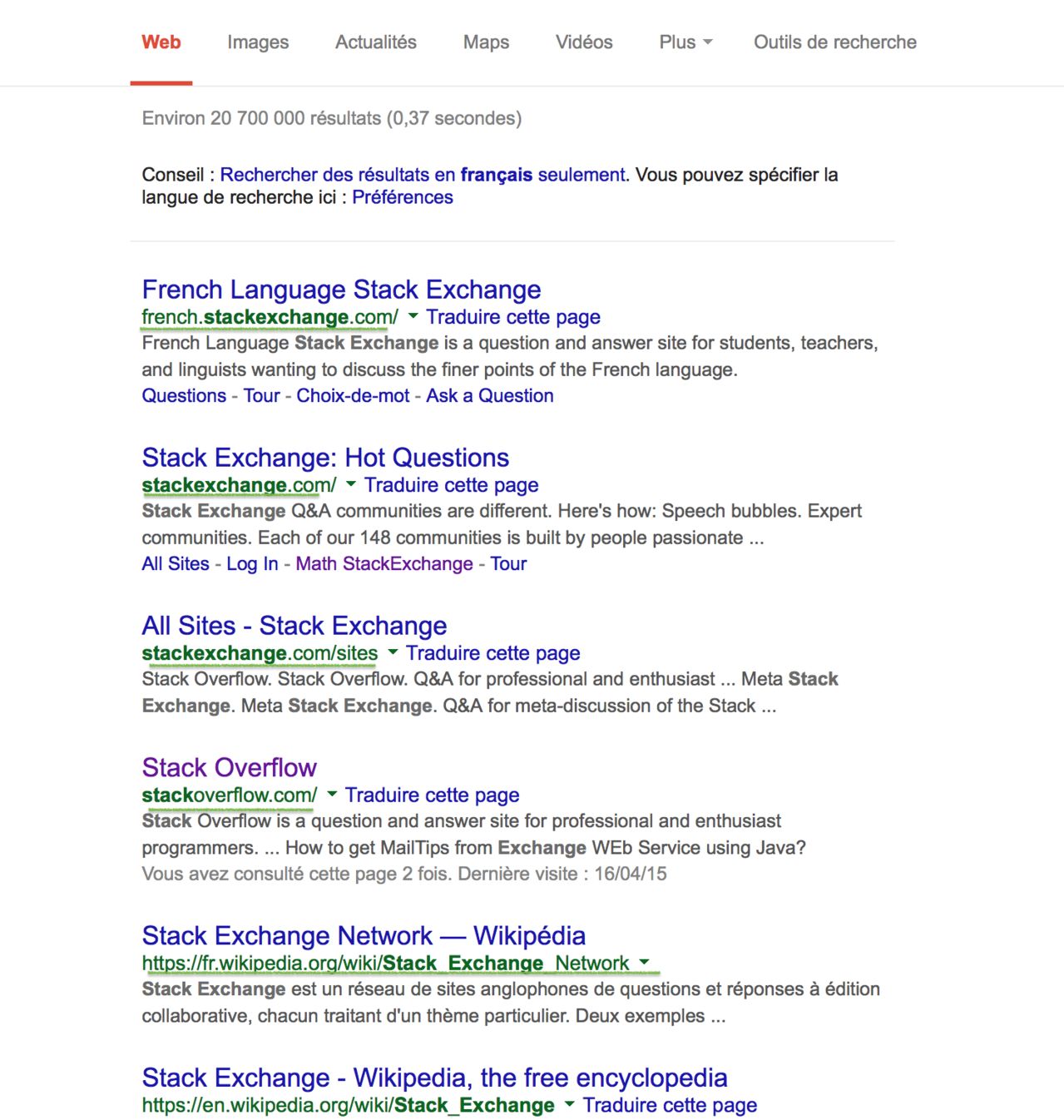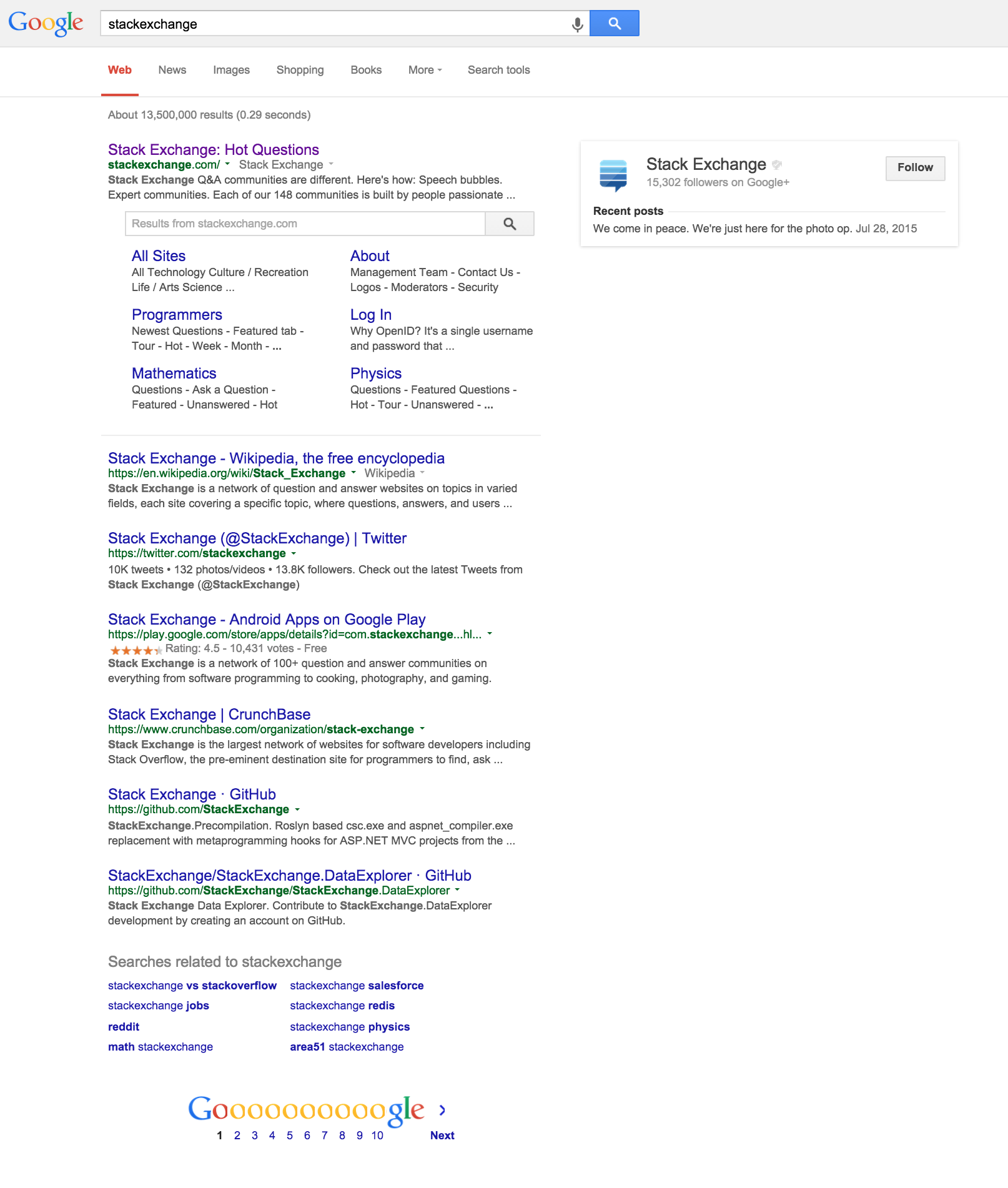When you search something on google, within the results page, the user can see green links, for the first page of results.
In the shortest form possible, in bytes, using any language, display those links to stdout in the form of a list. Here is an example, for the first results of the stack exchange query :
Input :
you choose : the URL (www.google.com/search?q=stackexchange&ie=utf-8&oe=utf-8) or just stackexchange
Output :
french.stackexchange.com/, stackoverflow.com/, fr.wikipedia.org/wiki/Stack_Exchange_Network, en.wikipedia.org/wiki/Stack_Exchange,...
Rules :
You may use URL shorteners or other search tools/APIs as long as the results would be the same as searching https://www.google.com.
It's ok if your program has side effects like opening a web browser so the cryptic Google html/js pages can be read as they are rendered.
You may use browser plugins, userscripts...
If you can't use stdout, print it to the screen with, eg. a popup or javascript alert !
You don't need the ending / or the starting http(s)://
You should not show any other link
Shortest code wins !
Good luck !
EDIT : This golf ends the 07/08/15.



google.fr, do we have to use that as well? \$\endgroup\$gogle.deare fine as well? \$\endgroup\$